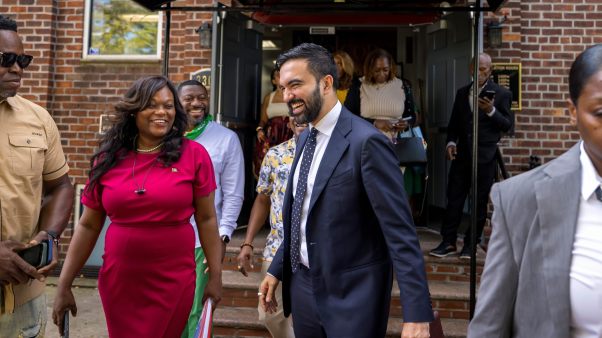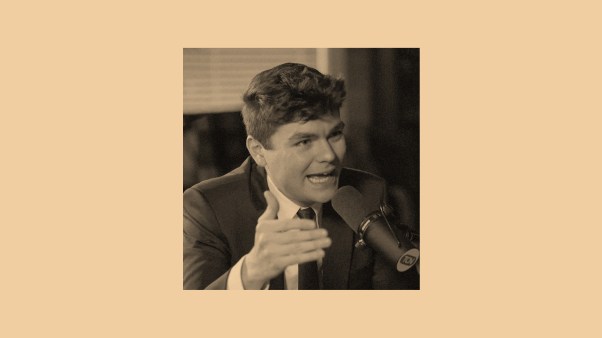During his visit to Latin America last month, Pope John Paul II repeated some of his favorite themes—opposition to abortion, birth control, liberation theology, and social injustice, as well as reaffirming Roman Catholicism’s “preferential option for the poor.” But the 70-year-old pontiff also made pointed references to the apparent defection of Mexican Catholics. He deplored “the painful fact” that some Mexicans “have broken this link of saving unity, joining the sects,” the term the Mexican Catholic hierarchy generally uses for all non-Catholic groups—Jehovah’s Witnesses, Mormons, and evangelicals alike.
Genaro Alamilla, Mexican Catholic church spokesman during the Pope’s visit, told the Associated Press that sects “take advantage of the poverty and ignorance of so many of our brothers.” He called such groups a divisive influence and said, “A divided nation, a people divided, becomes an easy victim for the international political filibusterers.”
Hard-Line Stance
The rapid growth of Latin evangelicalism, documented in such new books as David Martin’s Tongues of Fire and David Stoll’s Is Latin America Turning Protestant?, has not gone unnoticed by the Vatican and Pope John Paul II. In a 30-minute interview last January with evangelist Billy Graham, the Pope reportedly complained about aggressive evangelicals trying to draw Latins away from the Catholic faith.
Well-known theologian and writer Samuel Escobar says Latin Catholic leaders have become more hard-line toward Protestants, particularly in Mexico, Peru, Argentina, and Bolivia. Because of evangelical growth, Catholic leaders “are on the defensive,” he said.
Latin evangelicals must share some blame for Catholics’ reaction against them, says Escobar. “At times evangelicals may show a lack of prudence—especially some of the evangelistic agencies,” which sometimes go in large numbers into known anti-Protestant areas. In Central America, Latin evangelicals have been criticized for using powerful sound systems that blast their worship services in the neighborhood.
But even some of the best of Catholic-Protestant relationships have cooled recently. The United Bible Societies (UBS) have enjoyed a cordial working relationship with Latin bishops, who obtain Bibles and Scripture portions from UBS for distribution. “There are still bishops who work with us, but this is becoming less and less the case,” said Luciano Jaramillo, UBS director of promotion, information, and distribution for the Americas region,
Jaramillo blamed the Pope’s “polity of regression,” a pulling back from the reforms and openness instilled by the Second Vatican Council in the early 1960s, for a “flowering anti-Protestantism” in Latin America. “Pope John Paul II practices ecumenism at a high level, when it suits his purposes, but it’s a closed ecumenism,” he said.
The Pope’s frequent calls for Latin Americans to return to the “true religion” and his heavy emphasis on devotion to the Virgin Mary have also hurt Catholic-Protestant relations, Jaramillo said. During his May visit to Mexico, the Pope beatified five Mexicans, including Juan Diego, an Indian said to have received a vision of the Virgin Mary. One of Latin Catholics’ most revered shrines to the Virgin Mary, the Basilica of Guadalupe, was consecrated in 1709 on the spot where the vision was said to have occurred.
Presidential Meeting
Violent persecution of evangelicals is mostly a thing of the past in Latin America, where an estimated 90 percent of the 400 million population are professing Catholics. But some incidents still occur. Last February, for example, a mob attacked a group of 160 Mexican evangelicals outside Mexico City (CT, March 19, p. 44). That incident, however, may have benefited the evangelicals’ cause.
Juan Isáis, director of Evangelism-in-Depth in Mexico, was badly beaten in the February 2 incident. He said he received threatening calls from security police after the attack. “So I wrote a letter to President Carlos Salinas de Gortari,” said Isáis, “explaining they were threatening me in his name and on behalf of the national security. I said, ‘Whenever you want me, I’ll be glad to show up at the Presidential Palace with 159 other people who were beaten because of this situation.’ ”
Within 24 hours, according to Isáis, a presidential adviser called him in for an interview. On March 5, President Salinas received a delegation of evangelical elders, including three Baptists, three Presbyterians, and two Methodists. Observers called it the first time in memory that a Mexican president has met with evangelical leaders.
In the meetings, the evangelical elders made clear their support of the country and their support of religious freedom. (Because Jehovah’s Witnesses oppose the pledge to the flag and military service, Mexican critics accuse all sects of being antipatriotic.)
Still, it is clearly the results of evangelicals’ missionary efforts that cause most concern among Catholics. And evangelical leaders say they have no intention of curtailing their outreach.
By John Maust in Mexico.










